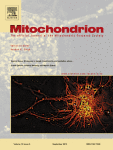
What Caught Our Attention: One would think that the corresponding author would have to be aware that they are submitting an article for publication — but apparently not, as this retraction demonstrates. The 2016 paper listed two corresponding authors — along with both of their emails and mailing addresses — but according to the retraction notice, one of them did not give consent “in any form” to the publication. Often, we see authors unaware of the use of their name when their email has been faked, but here, it’s possible the journal simply relied on the other corresponding author for all correspondence. Continue reading Caught Our Notice: How can a publication be a surprise to a corresponding author?
 After
After  The University of Cologne has conducted an investigation into the research of Tina Wenz, and determined that six papers should be pulled due to scientific misconduct.
The University of Cologne has conducted an investigation into the research of Tina Wenz, and determined that six papers should be pulled due to scientific misconduct.